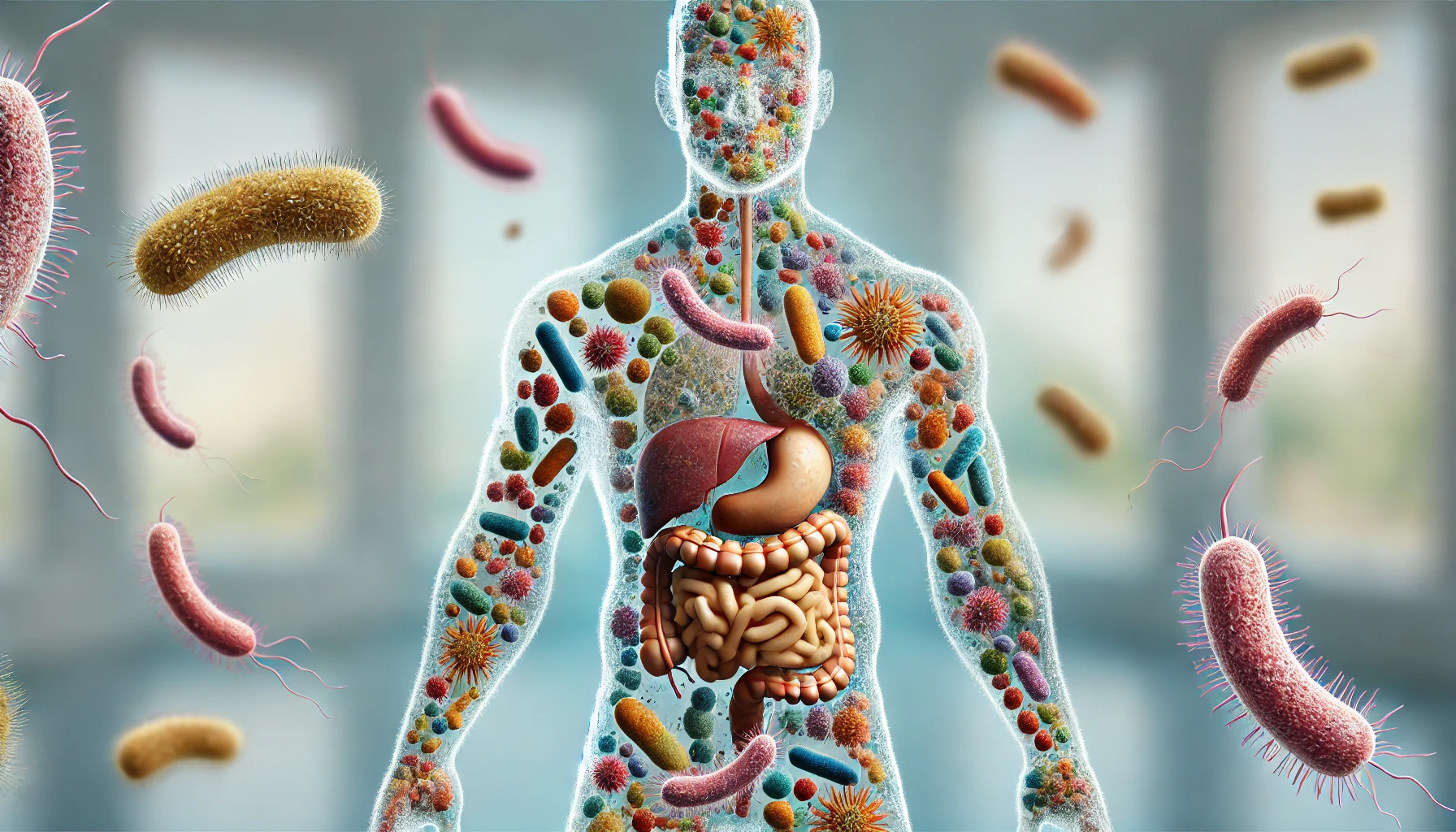The Role of Microbes in the Human Body
Microbes, the microscopic organisms that include bacteria, viruses, fungi, and archaea, play an indispensable role in shaping human health and well-being. Far from being mere pathogens responsible for illnesses, microbes coexist with humans in a symbiotic relationship that has evolved over millennia. These tiny organisms influence everything from digestion and immune function to mental health and even disease prevention. 
The human body is home to trillions of microbes, collectively known as the microbiome, which inhabits various environments such as the gut, skin, and respiratory tract. Understanding their roles provides fascinating insights into how life thrives in complexity and harmony.
Microbes and the Gut Microbiome
One of the most significant roles microbes play in the human body is within the gastrointestinal system. The gut microbiome comprises a dense population of microbes that collectively weigh as much as the human brain and serve as a "second brain" in terms of its impact on bodily functions. These microbes are responsible for breaking down complex carbohydrates, fibers, and proteins that our digestive enzymes cannot process. Through fermentation, gut bacteria produce short-chain fatty acids like butyrate, acetate, and propionate, which nourish intestinal cells, regulate inflammation, and support metabolic health.
Moreover, gut microbes produce essential vitamins, such as vitamin K and some B vitamins, which contribute to overall health. Beyond nutrition, the gut microbiome has profound effects on immune regulation. Nearly 70% of the immune system resides in the gut, and its interaction with microbes trains immune cells to distinguish between harmful pathogens and benign or beneficial organisms. Imbalances in the gut microbiome, termed dysbiosis, have been linked to numerous conditions such as obesity, type 2 diabetes, irritable bowel syndrome, and even mental health disorders like anxiety and depression.
Microbes and Immune System Modulation
Microbes are essential in shaping and modulating the immune system. At birth, the immune system is immature, and exposure to microbes through breastfeeding, skin contact, and environmental factors helps establish a robust immune response. Beneficial bacteria such as Lactobacillus and Bifidobacterium stimulate the production of anti-inflammatory cytokines, which regulate immune activity and prevent autoimmune diseases.
On the skin, microbes form a protective barrier against invading pathogens by occupying space and competing for resources, a phenomenon called "colonization resistance." Skin microbiota also produce antimicrobial peptides that inhibit the growth of harmful bacteria. For example, Staphylococcus epidermidis, a common skin bacterium, produces compounds that suppress the growth of pathogenic Staphylococcus aureus.
Similarly, in the respiratory tract, microbes play a critical role in preventing infections. The nasal and oral microbiota contribute to the mucosal immune response, ensuring that airborne pathogens like influenza viruses and streptococcus species are kept in check. When microbial balance is disrupted, conditions like eczema, asthma, and chronic sinusitis can develop, demonstrating the intricate relationship between microbes and the immune system.
Microbes and Mental Health
The connection between microbes and mental health has garnered significant attention in recent years, giving rise to the concept of the "gut-brain axis." This bidirectional communication system involves the nervous system, immune system, and endocrine pathways, allowing gut microbes to influence brain function and behavior. For instance, certain bacteria in the gut produce neurotransmitters like serotonin, dopamine, and gamma-aminobutyric acid (GABA), which are critical for mood regulation and cognitive processes.
Studies have shown that an imbalanced gut microbiome can contribute to anxiety, depression, and even neurodegenerative disorders like Alzheimer's disease. The presence of specific bacterial strains, such as Bacteroides and Prevotella, has been linked to resilience against stress, while their absence is associated with vulnerability to mood disorders.
Moreover, probiotic interventions, which introduce beneficial bacteria into the gut, have demonstrated promise in alleviating symptoms of depression and improving cognitive function in preliminary clinical trials.
Microbes and Disease Prevention
Microbes also play a preventive role in various diseases, acting as guardians of the body's ecosystem. For instance, gut bacteria help metabolize bile acids and dietary compounds into anti-inflammatory agents that reduce the risk of colorectal cancer. Similarly, vaginal microbiota dominated by Lactobacillus species maintain an acidic environment that prevents the overgrowth of harmful organisms, thereby reducing the risk of infections such as bacterial vaginosis and sexually transmitted diseases.
In cancer therapy, the microbiome has emerged as a crucial determinant of treatment success. Studies indicate that a healthy gut microbiome enhances the efficacy of immunotherapy by boosting the immune system's ability to recognize and attack tumor cells. Conversely, antibiotic-induced dysbiosis can compromise treatment outcomes, highlighting the importance of microbial diversity and balance.
Furthermore, microbes influence cardiovascular health by metabolizing dietary nutrients into bioactive compounds. For example, certain gut bacteria metabolize choline and L-carnitine from red meat into trimethylamine-N-oxide (TMAO), a compound linked to cardiovascular disease. Managing microbial populations through diet and prebiotic supplementation could thus offer strategies for reducing heart disease risk.
Conclusion
Microbes are not merely passive inhabitants of the human body; they are active participants in shaping health and disease. From aiding digestion and modulating the immune system to influencing mental health and preventing diseases, microbes are indispensable to human life. As research advances, the potential to harness the power of microbes through probiotics, prebiotics, and microbiome-based therapies offers hope for addressing some of the most pressing health challenges of our time.
Understanding the intricate relationship between humans and microbes requires a shift in perspective—from viewing microbes as enemies to recognizing them as allies in the quest for optimal health. By nurturing and preserving the delicate balance of the microbiome, we can unlock a new frontier in medicine and well-being.
References
- NIH: Human Microbiome Project
- Nature Reviews: Gut Microbiota in Health and Disease
- Microbes and Mental Health
- Frontiers in Immunology
- World Journal of Gastroenterology
- Harvard Health: Microbiome and Disease
- Cell Host & Microbe Journal
- The Role of Microbiota in Cancer Therapy
- Gut Microbiota and Cardiovascular Health
- Microbiome in Immune Development






























































